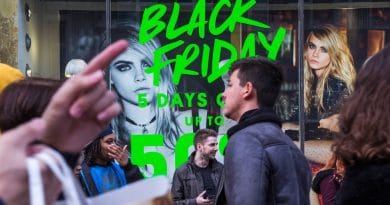‘There’s really something to be said for the micro-influencer’
Luxury fashion resale site Dora Maar launched in 2019. It was good timing, considering how resale has taken off since the start of the pandemic.
“In 2020, we found our footing. And in 2021, we really blew it out,” said Lauren Wilson, founder and CEO of Dora Maar, on the latest Glossy Podcast. “Year over year, we grew 570%.”
Dora Maar’s differentiator among resale companies is that it spotlights its sellers on its site and marketing channels, labeling them as “Muses” and treating them as influencers. It also attributes each product it sells to one of their closets.
Wilson pointed to her previous job experience as the inspiration for the business model.
“While working at Moda [Operandi] and, prior to that, at Christie’s, we were always digging behind the story of the designer or the women who wore it or the people who owned it,” she said. “And I thought, ‘Why doesn’t this exist in secondhand?’”
“This is a new way of retail,” she added.
Moving forward, along with bringing more Muses and also brand partners into the fold, Wilson plans to elevate Dora Maar’s automation and personalization capabilities. She’ll also continue to expand its product offerings to new categories – Dora Maar’s already introduced home and beauty categories since its launch.
“2022 is really about scaling up, Wilson said.
Below are additional highlights from the conversation, which have been lightly edited for clarity.
The power of the micro-influencer
“There is really something to be said for the micro-influencer. The more niche an influencer’s market is, the higher converting they are. We have a very, very feminine client; she loves pink and lace and girliness. And a lot of the Muses are these niche influencers who are based in the South and are young mothers. They have beautiful dresses from Alessandra Rich or Zimmerman, those types of brands, and they have cult followings. Not that we don’t target [influencers] with hundreds of thousands of followers — obviously, that’s great for brand awareness, and they’ve got great stories to share. But it’s the niche audiences that really drive it forward. We love finding an influencer who is really passionate about the Muse concept and [then seeing that] her closet does really well. One of our main acquisition channels is them referring other Muses. They’re all friends in these different niches, and that really drives into the personalization. It’s like, ‘OK, if all of our clients loved this one muse, they’re gonna love her four other friends who have a similar style.’ And so that’s how we’re starting to grow out that community and network of Muses.”
Organic vs. paid marketing
“You’ve seen so many buzzy brands just breaking their backs and spending on social media marketing. That was the way to get customers. But we spent a lot of time understanding, ‘OK, if this brand is going to be successful, we need that organic momentum. The Muses and their closet, and the customers engaging with those closets, need to provide that flywheel, or else it’s not going to work.’ So we really started by not spending much on digital marketing. We’ve layered that on, as we’ve grown and scaled. It’s obviously something that has to be done, but it’s always catapulting off of the Muses’ own momentum. So if [the collection we’re selling is] Rodarte x Charlese, we’re going to talk about that. If it’s Markarian x CeCe Barfield, we’re going to talk about that. And my favorite is when you’ve got a muse saying they’re selling their closet on Dora Maar, then someone buys it, posts it and says, ‘This is from Dora Maar from Lauren Levison’s closet.’ And then Lauren Levison reposts who’s been buying from her closet. It’s this total flywheel of community and connectivity, and I think that’s what’s so exciting about Dora Maar. There is no luxury space that has this type of community. And so that’s where we wanted to nail it. We’re obviously going to spend on marketing. Anyone who says, ‘Oh, we’re always going to be organic forever,’ is kidding themselves. But that organic virality at the foundation of who we are is what had to be nailed to prove the concept. And now it’s about layering and scaling that up.”
On category expansion
“We started with luxury fashion because that’s what I know the best, but really these Muse closets are just luxury, in general. We launched into home in January with DoMa Dwell, through a platform called Freddie. Freddie is an offshoot of Schumacher, which is obviously a big home company. We’re taking some of their interior decorators and having them be Muses and sell both their closet and home items. And then we launched into beauty, as well. One of our bigger supporters and advisors is a very big figure in beauty and fashion and lifestyle. And she hooked us up with some amazing brands. And so, over the next week, as we lead up to fashion week, some of our muses will be doing a campaign called “Your face for fashion week.” Beauty, home and other categories really just play into what a luxury lifestyle is. And the Muses act as that on so many different fronts. So we’re excited to explore those new categories.”

:quality(70):focal(989x571:999x581)/cloudfront-eu-central-1.images.arcpublishing.com/businessoffashion/PXRND2JKB5CIPMZ5PZNA7K6M4A.jpg)
